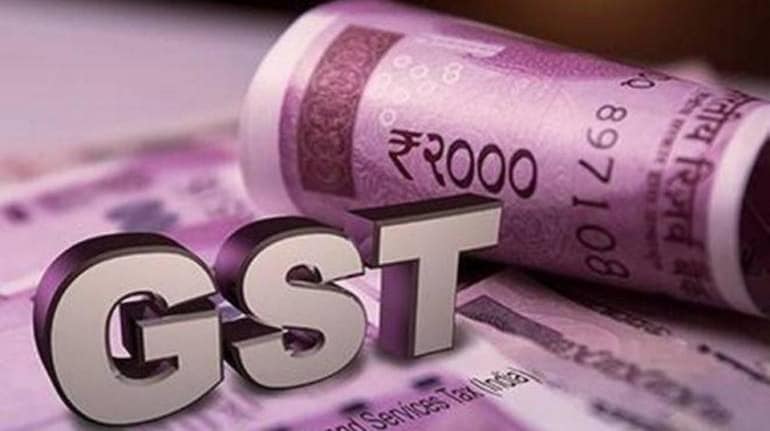



The COVID-19 pandemic has depleted government revenues, which has also had an impact on the Goods and Services Tax (GST) collections. For the April-June period, GST collections fell 41 percent. Due to lower GST revenues, states have also received delayed compensation payments and some of it is also pending.
Compensation conundrum
The Indian economy was in a slowdown, even before the COVID-19 pandemic hit India. This was reflecting in the weak economic indicators and a slowing GST collection. In October, payments to states got delayed as the collection was lower than expected.
Under GST law, states were guaranteed to be paid for any loss of revenue in the first five years of the GST implementation from July 1, 2017. The shortfall is calculated assuming a 14 per cent annual growth in GST collections by states over the base year of 2015-16. States are promised compensation for any revenue shortfall till 2022, in case they go below the 14 per cent annual growth since the GST rollout in 2017.
The amount due to states started rising at a compounded rate of 14 per cent, despite compensation collections not showing any major upward movement for two consecutive years. For the April-June period, Rs 14,675 crore has been collected as compensation cess, of which Rs 7,665 crore was collected in June. The Centre cleared Rs 36,400 crore for November-February period in June. The compensation amount for subsequent months, however, is still pending.
States' stand
Finance Minister Nirmala Sitharaman said the Centre would be looking into the legality of GST Council borrowing from market to meet the compensation requirements. It is one of the solutions that have been discussed in the GST Council. However, the legal provisions for the same have to be ascertained.
On the possibility of market borrowing, states stand divided. Kerala has been backing the suggestion, but Bihar opposes it. However, all states agree on honouring compensation at the assured rate of 14 percent.
States have also said there is a need to restructure the GST slabs as most of them believe the current rates are lower than revenue-neutral rates. However, both Centre and states agree that an overhaul of the regime can only happen once the economic effects of the pandemic wear off.
Solutions at hand
In a paper sent to Finance Minister Nirmala Sitharaman, Vijay Kelkar, former finance secretary and chairman of the 13th finance commission, has said the Centre should borrow from the market and settle the states' claims.
“Though it does not appear to be legally liable, it has a moral imperative to do so, even if the guaranteed rate of revenue of 14 percent is inordinately high in the present COVID led economic downturn,” the paper said. The paper also observed that a restructuring of the GST model should be considered if the losses for states continue.
The paper provides a list of five solutions that can be considered to sort out the states' issues. Lowering the guaranteed 14 percent rate of compensation, increasing the compensation cess, increasing the state’s share, borrowing from the market by the GST Council and borrowing by the Centre from the market and crediting it to the compensation fund. Kelkar, however, has said the only viable option of the five is to let the Centre borrow and bridge any gap in the GST cess that is used for compensating states.
The GST Council in its various meetings has also discussed the idea of hiking the cess rate or lowering the guaranteed compensation rate. However, states are not in favour of either of the options.
What's a compensation fund?
Cess levied on sin and luxury goods, like tobacco and automobiles, get collected into the compensation fund. As early as in 2017, states took up the issue of other sources of revenue generation for the compensation fund, in case of a shortfall.
While announcing the balance transfer due from collections for 2016-17 and 2017-18 in two instalments to the GST Compensation Fund, during the presentation of Budget 2020-21, Sitharaman had said, henceforth, transfers to the fund would be “limited only to the collection by way of GST compensation cess."
Kelkar, in the same paper co-authored with Pune International Centre's Senior Fellow V Bhaskar, questioned this proposition. “While the Centre’s position appears legally tenable, it does not appear ethically defensible…its decision to restrict transfer to the Fund only to compensation cess collections seems more a fiscal aspiration than a legal compulsion. Section 10(1) of the Act allows for “other amounts” also to be credited to the Compensation Fund with the approval of the GST Council,” it said.
Discover the latest Business News, Sensex, and Nifty updates. Obtain Personal Finance insights, tax queries, and expert opinions on Moneycontrol or download the Moneycontrol App to stay updated!
Find the best of Al News in one place, specially curated for you every weekend.
Stay on top of the latest tech trends and biggest startup news.